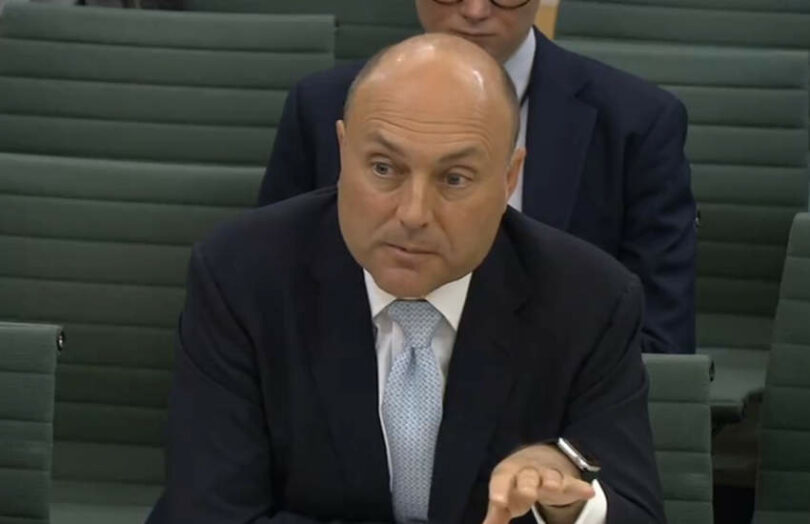The UK’s Treasury envisages a private wholesale stablecoin launching before a central bank digital currency (CBDC). Enabling legislation, the Financial Services and Markets Bill (FSM), covers stablecoins and is expected to pass around April. If the Bank of England launches a CBDC, the first use case is likely to be interbank settlements using a wholesale CBDC.
The news came from Andrew Griffith, the Economic Secretary of the Treasury and City minister, who was CFO and COO of broadcaster Sky until 2018. He was talking before the UK’s Treasury Select Committee yesterday.
Fnality, a venture backed by 17 major financial institutions, will likely be the first ‘wholesale stablecoin’ example, as the Treasury has already recognized it as a systemically important payment system. It provides an interbank payment system that uses a digital currency backed by deposits at the Bank of England, with plans for digital currencies in other jurisdictions, such as Europe and the United States. Fnality was due to launch in October 2022 but was delayed “to allow further time to complete relevant regulatory and onboarding work.” The regulatory work relates to the FSM Bill.
Although Griffith also sees a CBDC targeting the same wholesale settlement use case, he predicted that the private version would launch first because it is already far down the road, and a CBDC is “fraught with public policy decisions”.
Member of Parliament (MP) Danny Kruger asked, “But do you agree that if the government and the Bank issues its own digital currency, that would quickly crowd out the private competitors that might arise earlier? What would be the point of a private stablecoin if there was a wholesale sovereign currency?”
Griffith responded, “I think it’s too early to know that in truth. And what the different attributes of that would be.”
In response to another question asking why it’s bothering with stablecoins rather than proceeding to a wholesale CBDC he reiterated the public policy issues and said, “I don’t think there’s a particular trade off. It’s just that one (stablecoins) we can move forward with and should (do so) right now.”
Moving on to a possible future retail CBDC, the Minister emphasized that any CBDC would not provide the central bank with access to private transaction details as banks would intermediate it.
The hearing also covered the regulatory agenda for DLT and crypto-assets covered in a separate article.











 All while Pfizer—a company with a $2.3 billion criminal fine for fraudulent marketing, bribery, and kickbacks—was given blanket immunity from liability and billions in taxpayer dollars to produce a vaccine in record time with no long-term safety data.
All while Pfizer—a company with a $2.3 billion criminal fine for fraudulent marketing, bribery, and kickbacks—was given blanket immunity from liability and billions in taxpayer dollars to produce a vaccine in record time with no long-term safety data.
























